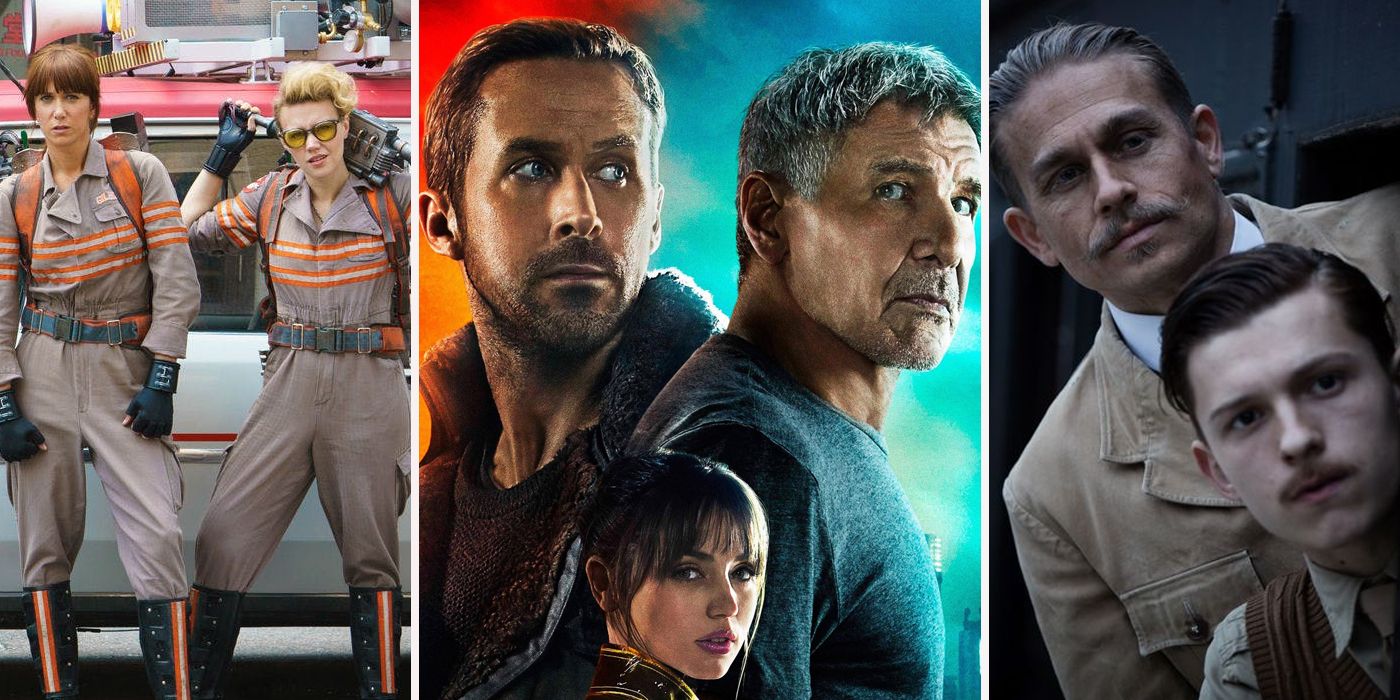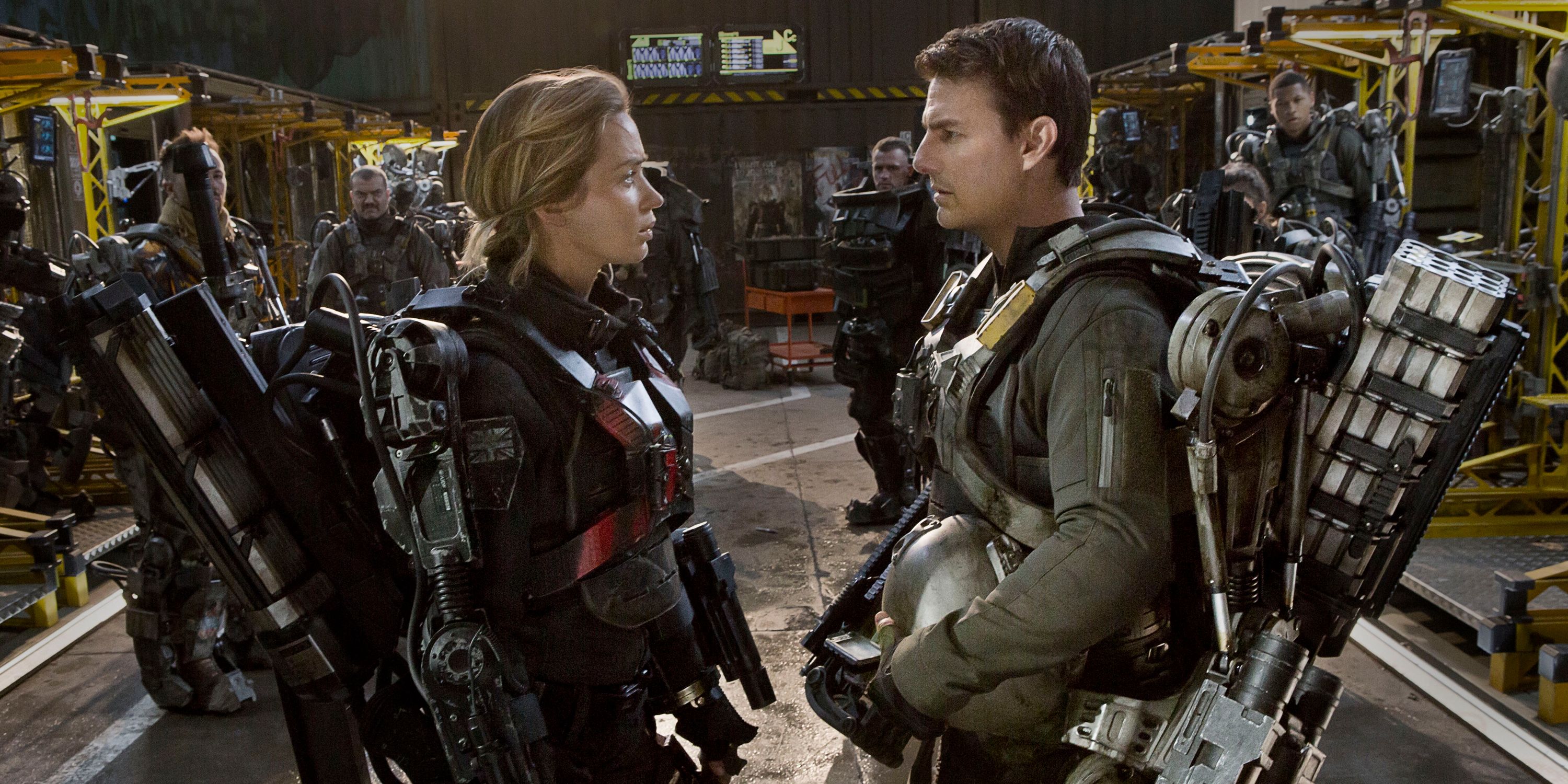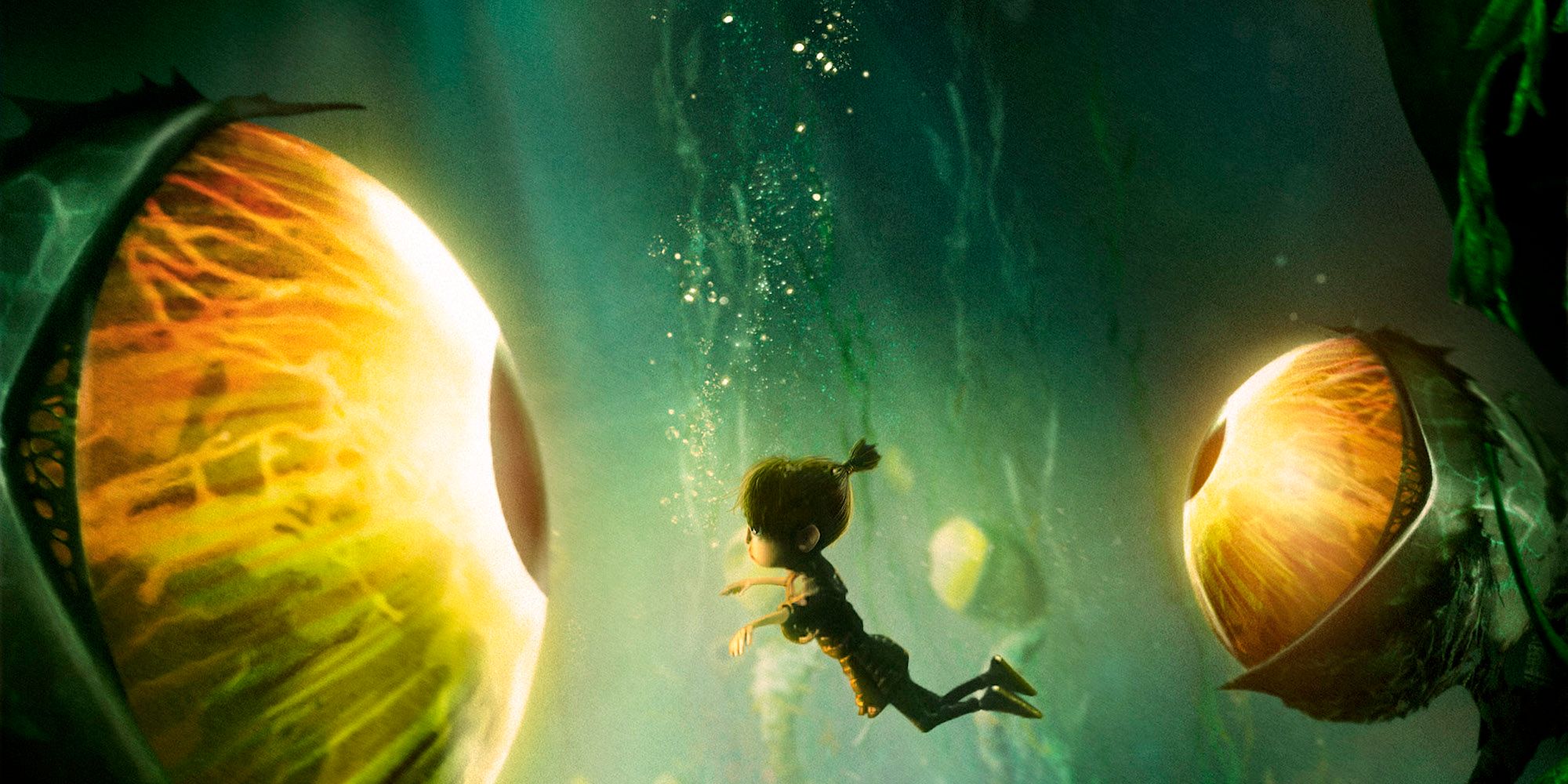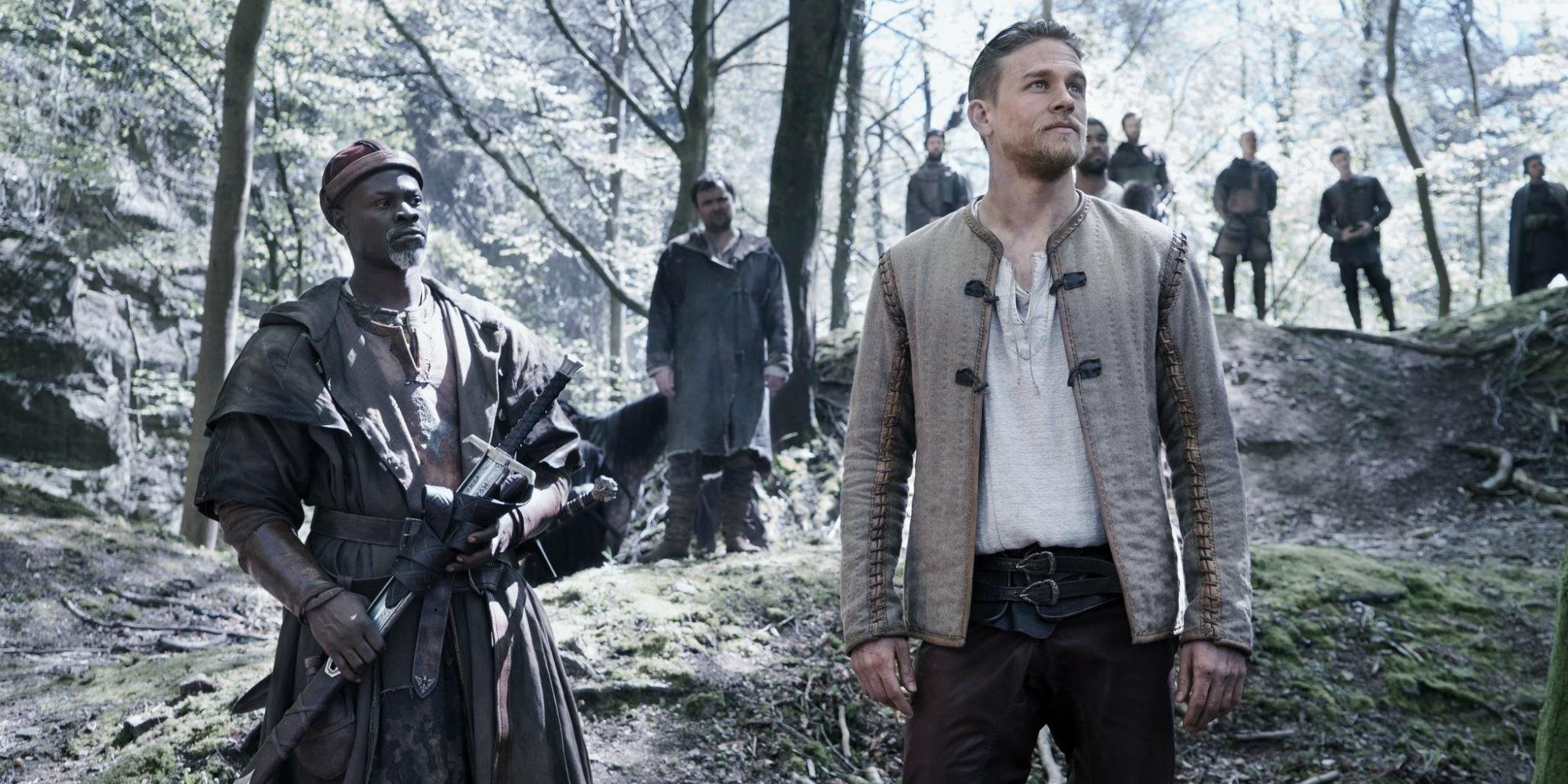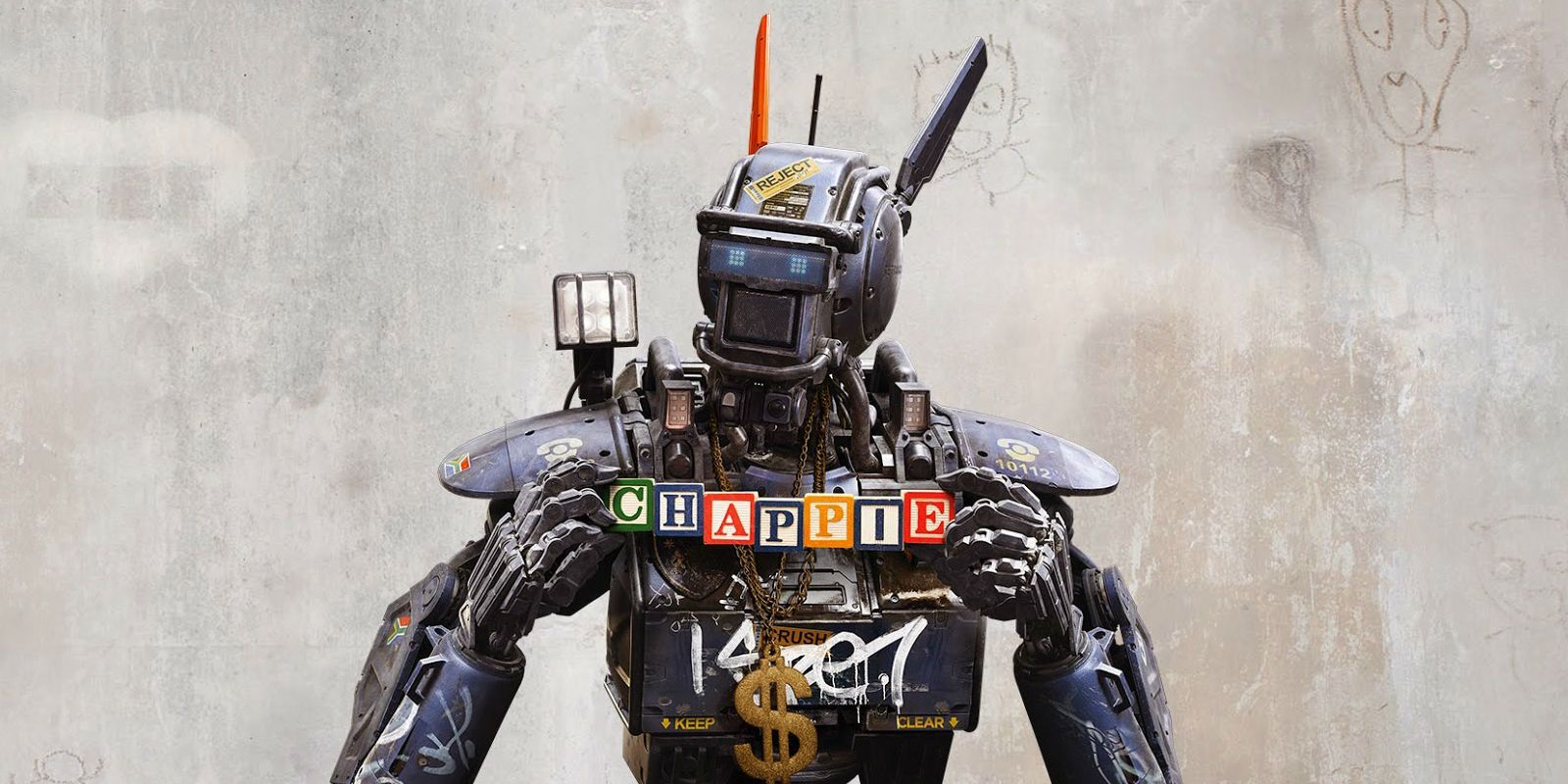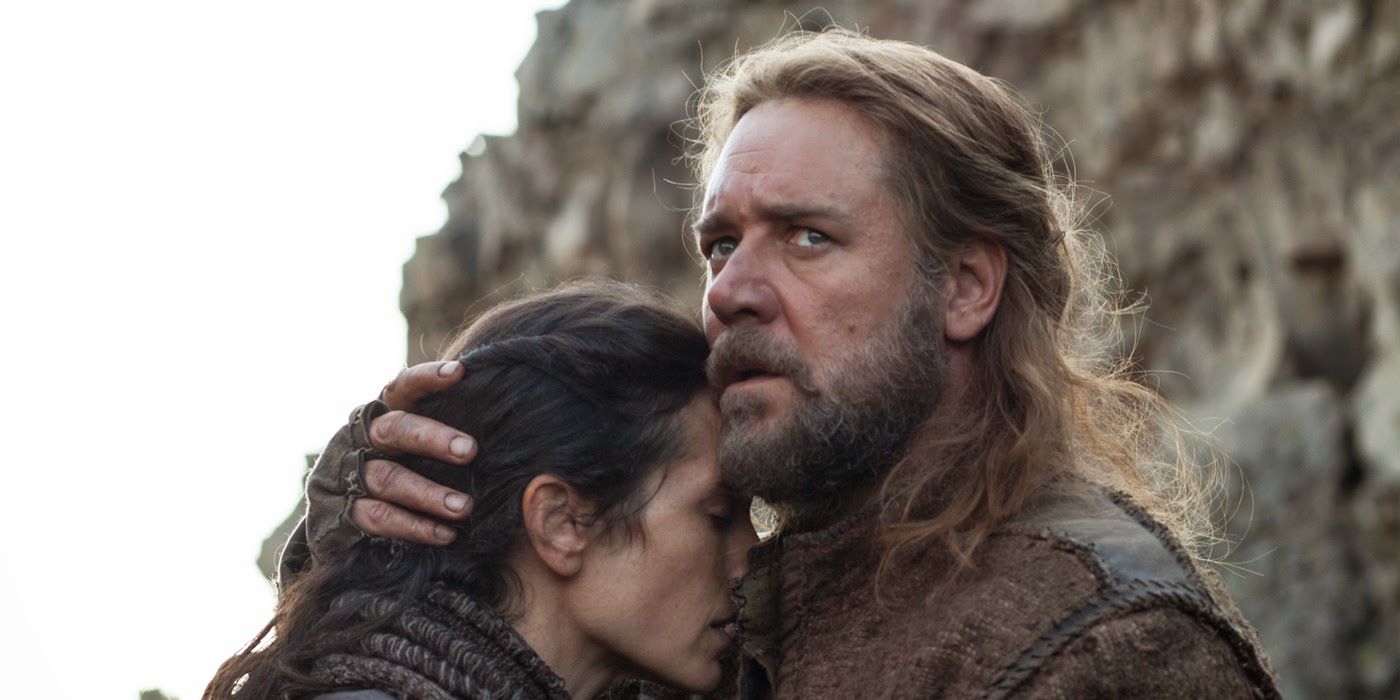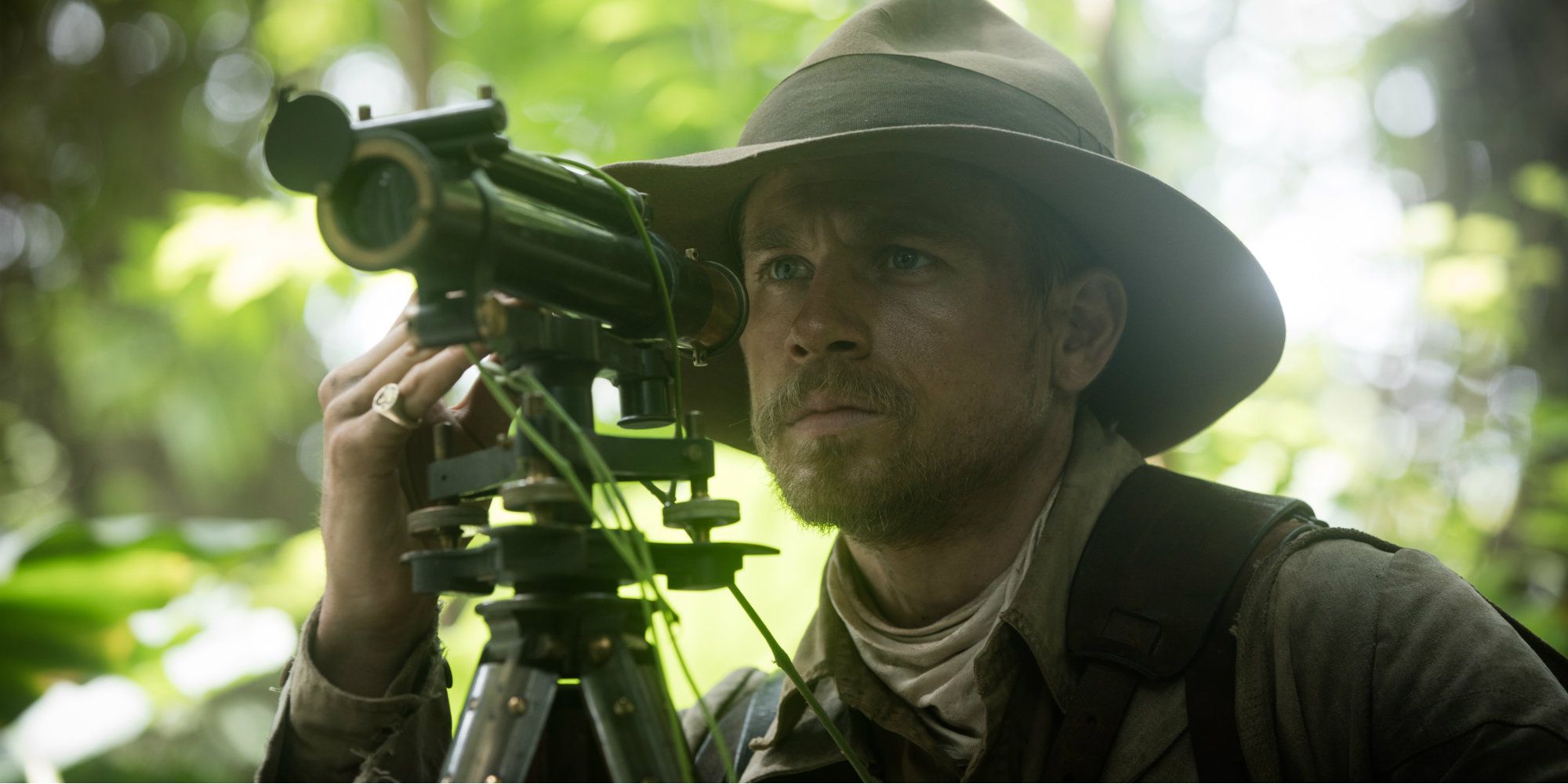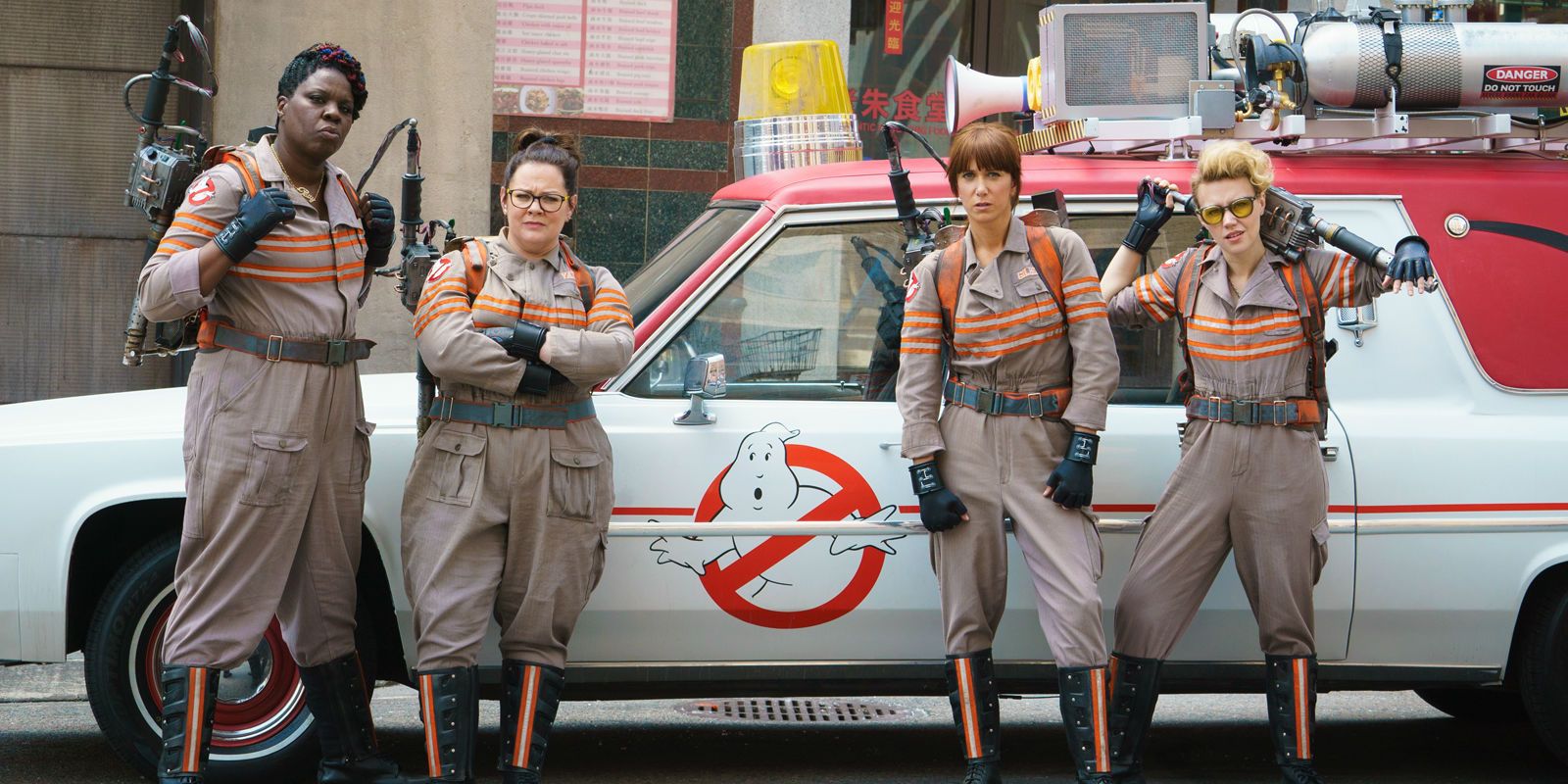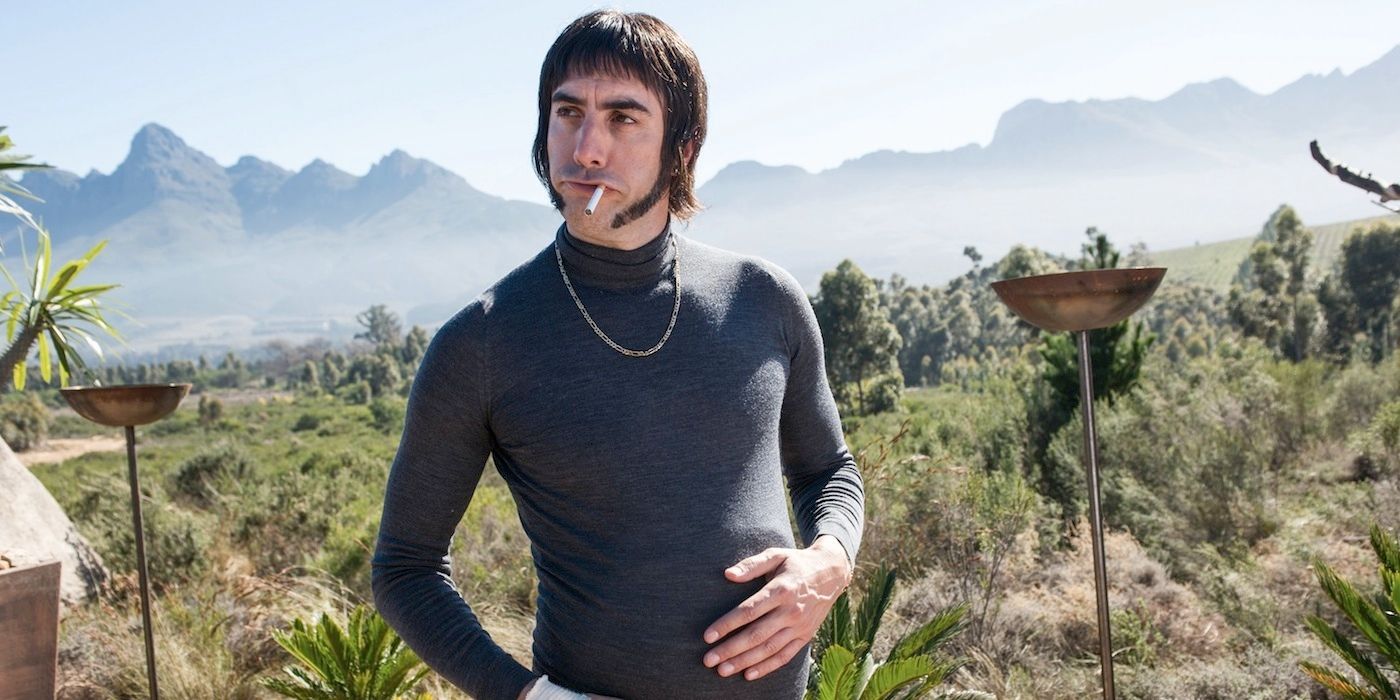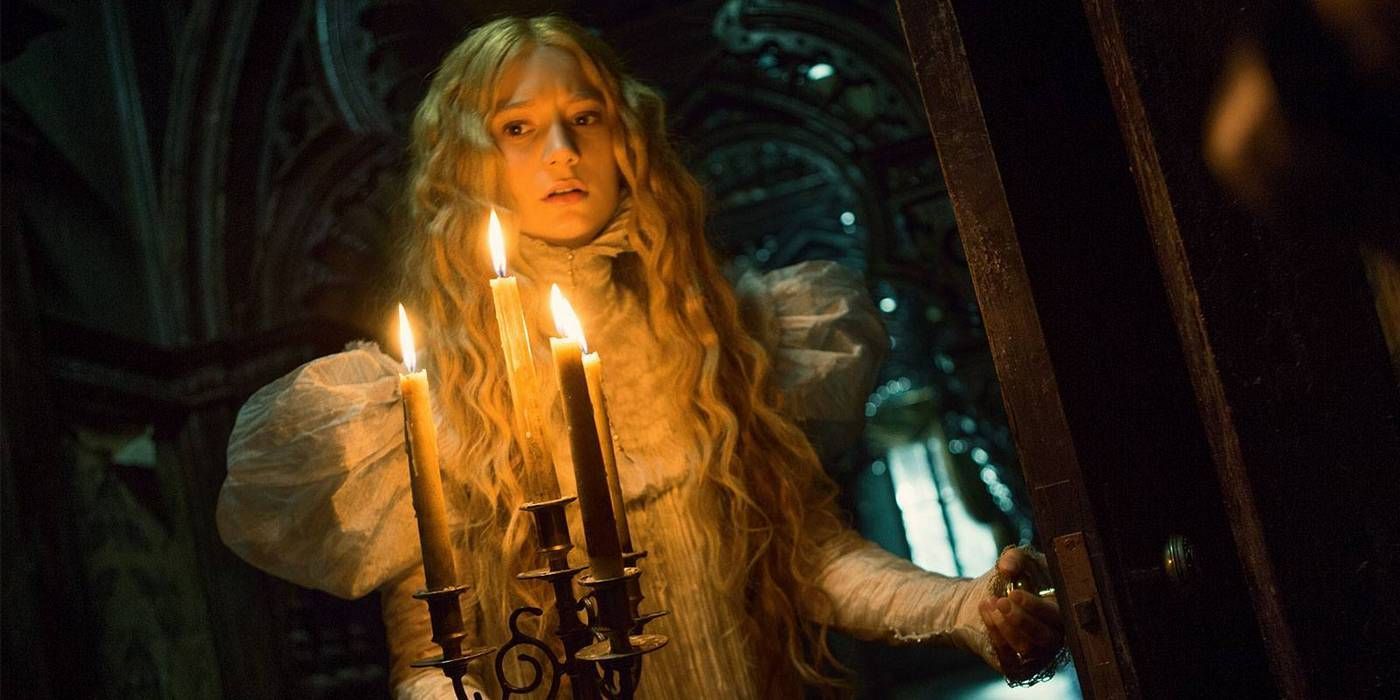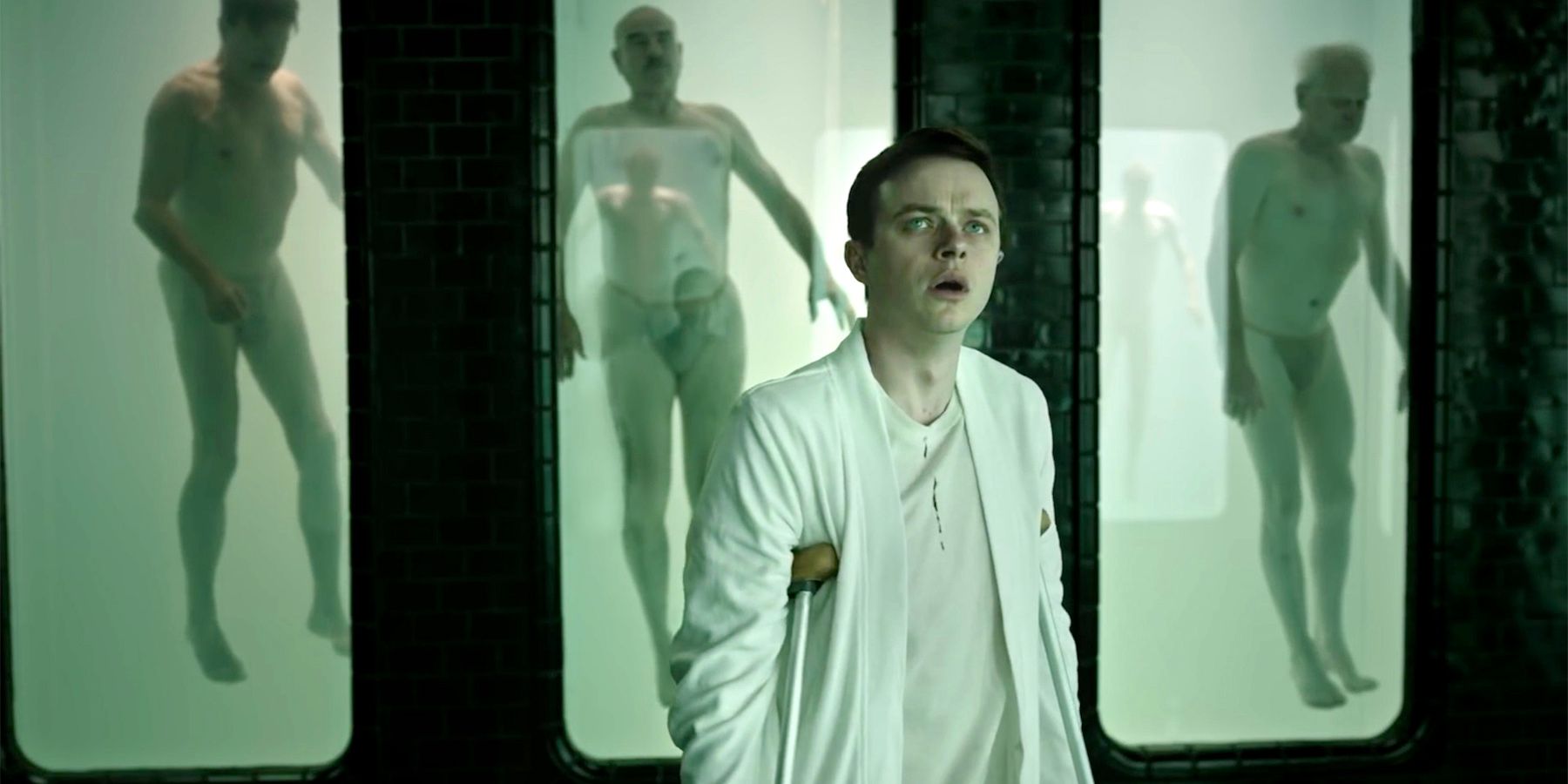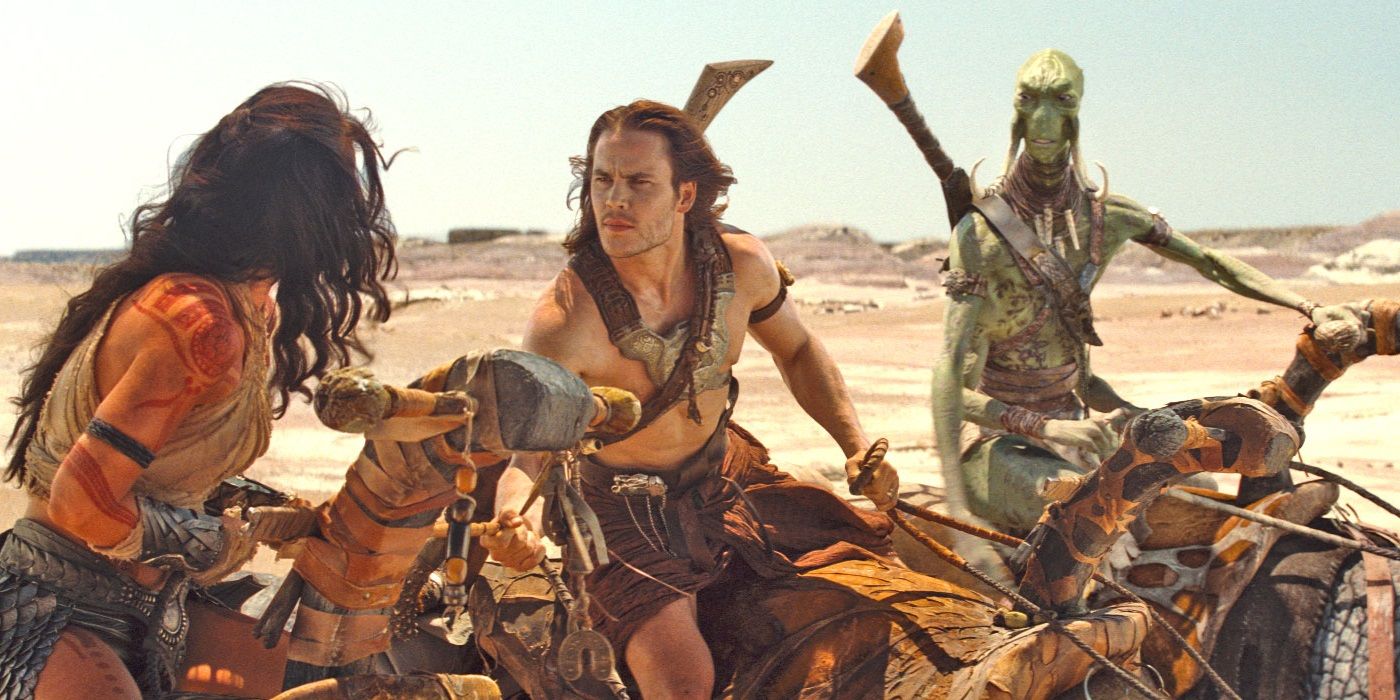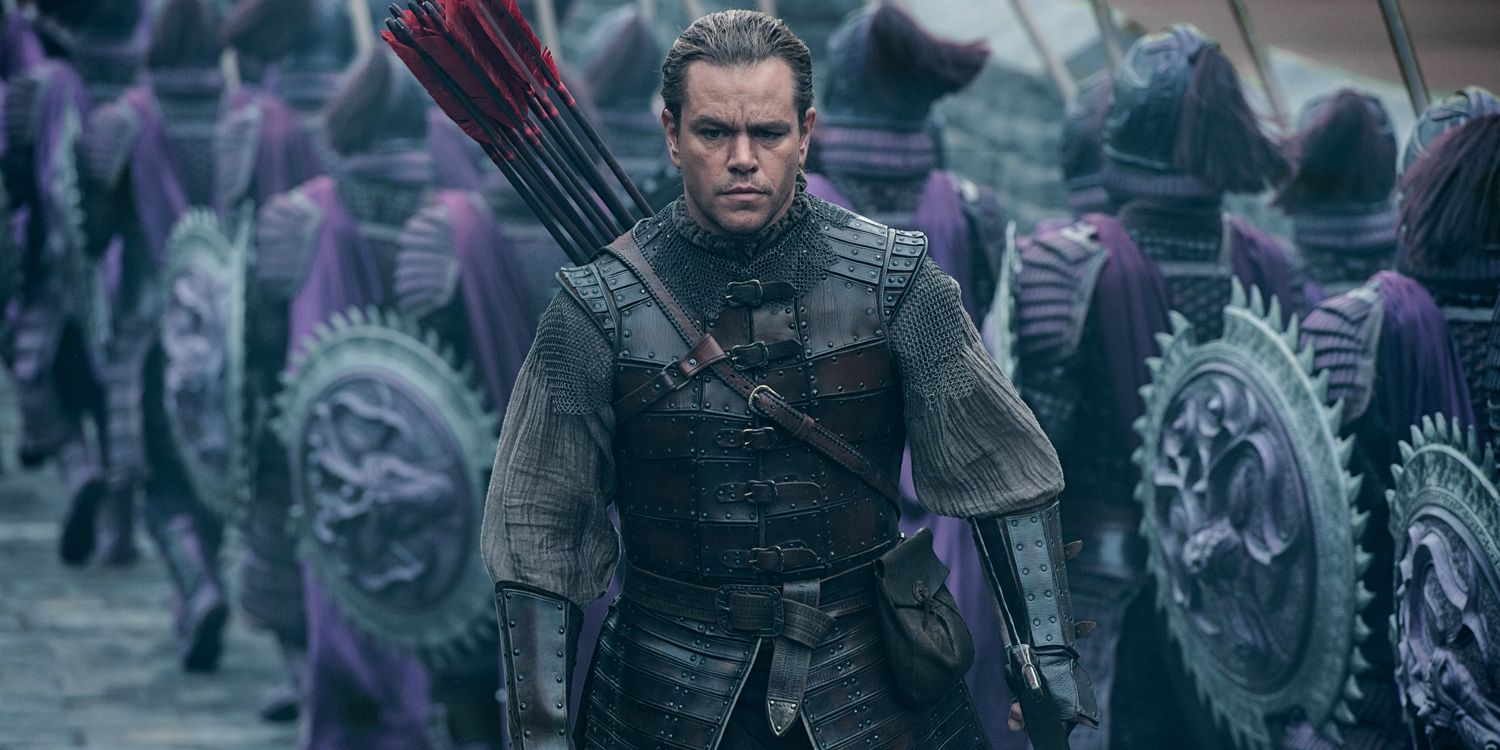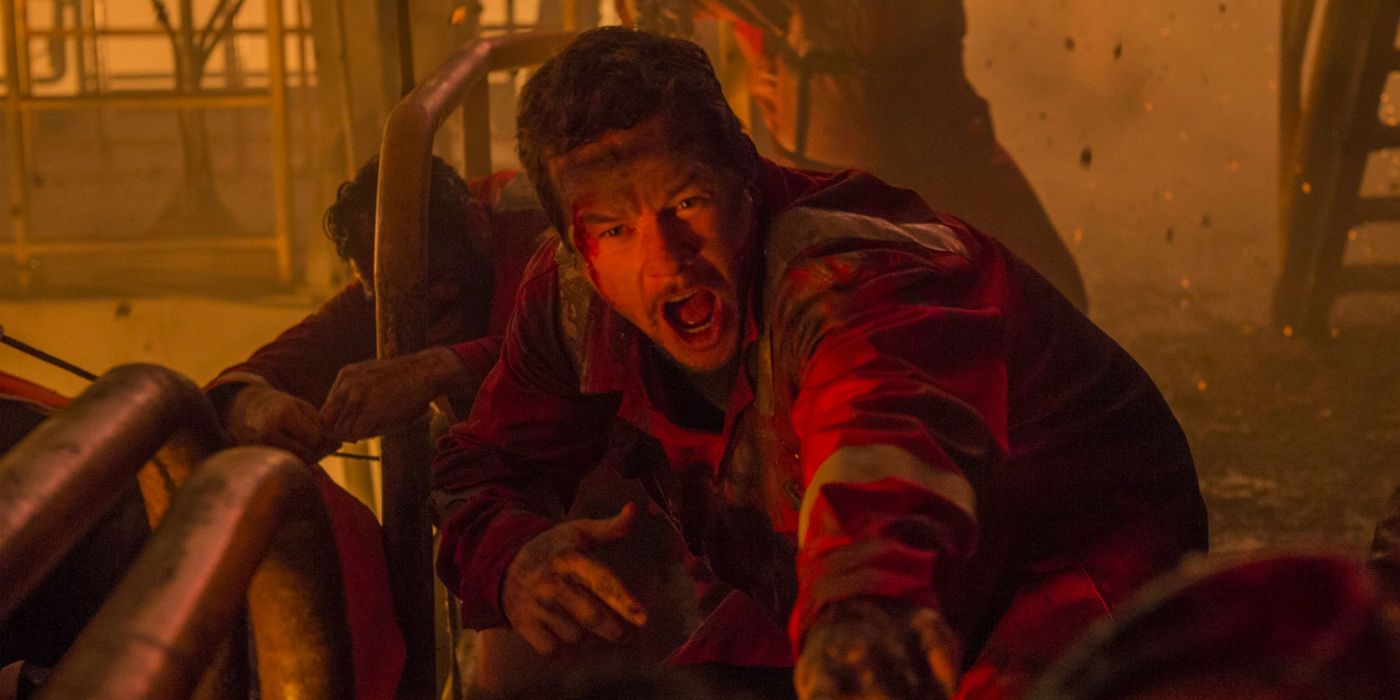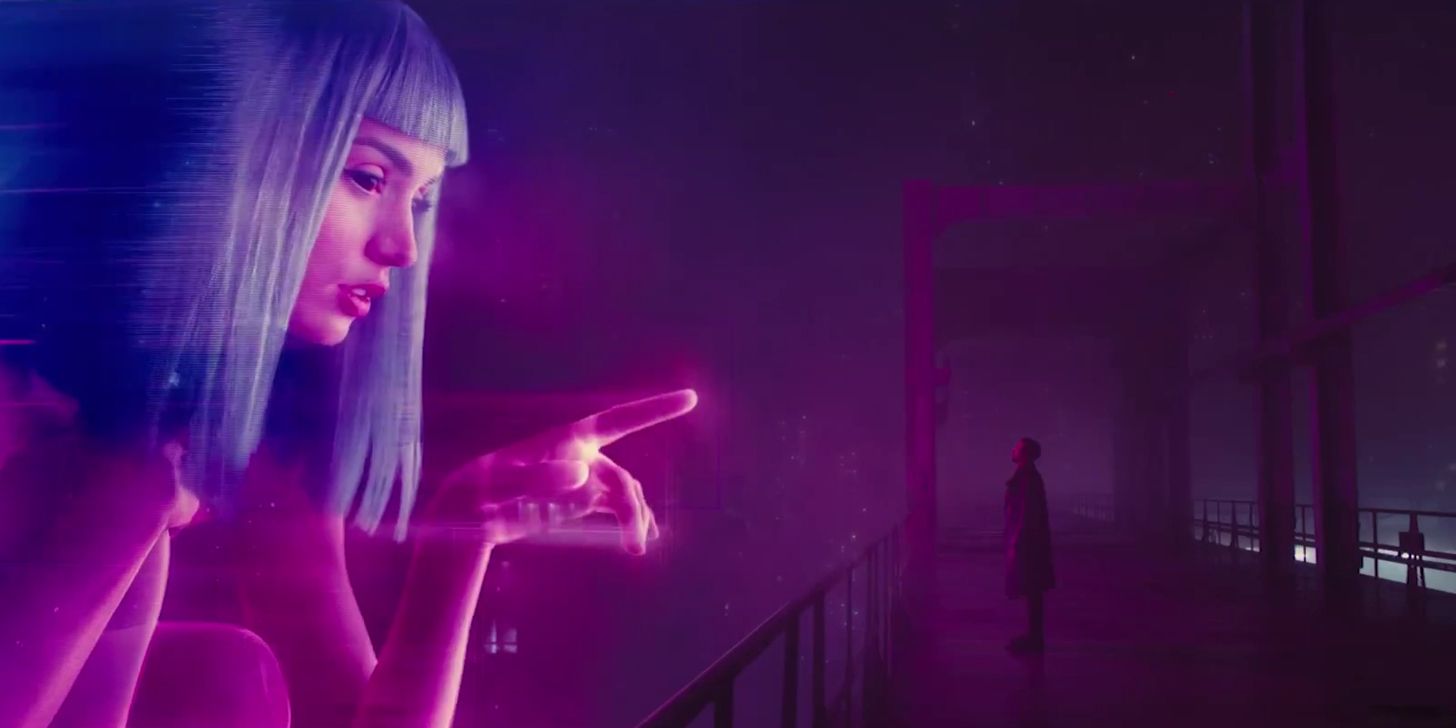Imagine a movie-going climate in which critics judged movies based on their financial success. The Transformers franchise would be likened to the The Godfather trilogy, Disney’s grip on the market would increase exponentially, and arthouse cinema would be a thing of the past. Okay, now stop imaging that because ugh, that’s horrible.
There are hidden gems to unearth from the muddy clumps of 99p rental duds-- for every 47 Ronin or Battleship there’s a Cloud Atlas or Hugo. Heck, The Shawshank Redemption fared miserably at the box office, yet today it’s ranked as first on IMDb’s top 250. The bottom line is: financial failings is not necessarily a good indicator of a bad movie.
This, of course, leads to this list: an article that intends to unearth those gems for you, dust off the dirt, and present them in all their shining, deserved glory. With the steady lean towards franchises, sequels and, well, Hollywood safety, more and more films are being left behind, doomed to find their homes in an unwanted bargain bin. No more, we say.
Here are the recent crop of stellar films that flopped due to poor marketing, or unappealing premises, or because they couldn’t compete with the big boys. Here are the movies that earned so much less than they deserved.
Here are the 15 Movies That Bombed At The Box Office (But Deserve A Second Chance).
Edge of Tomorrow
Bombarding our screens in 2014 was Edge of Tomorrow... or is it Live, Die, Repeat? Maybe All You Need is Kill? Unfortunately, this sci-fi action flick headed by Tom Cruise and Emily Blunt was going through an identity crisis, and with it, a disappointing box-office return.
Mustering up a measly domestic gross of just over $100 million, this sorely underrated thriller was unable to make up for its sizeable $178 million production budget.
Its original title may have been an easier sell: All You Need is Kill, while clumsy, at least stands out. Comparatively, Edge of Tomorrow does nothing to set it aside from the mass of schlocky sci-fi guff.
At least Warner Bros agreed, retitling it Live Die Repeat for its post-theatre run. By then, however, it was too little too late. This is a shame, considering how (surprisingly) fantastic Edge of Tomorrow is: a gun-toting, rip-roaring, twisty success.
Kubo And The Two Strings
When it comes to animation, Hollywood is dominated by a few juggernauts: Disney, Pixar, and, er, The Boss Baby. If movies as stellar as Inside Out are the end product, then it’s not necessarily an issue, but if it’s Storks, or Sing, or yet another Ice Age, then the cracks begin to appear. Sadly, this animation stranglehold does suffocate smaller companies, such as Laika, from making the mark they deserve.
Their 2016 offering is perhaps the best of the bunch: Kubo and the Two Strings, a sweet, sentimental tale of loss and love that flaunts some astonishing hand-crafted animation; stop-motion has never looked so beautiful.
This makes its box-office return less an unmitigated disaster and more an unmitigated tragedy-- no film as beautiful as Kubo deserves to amass a mere $69 million worldwide gross from a $60 million budget.
King Arthur: Legend of the Sword
Poor Charlie Hunnam had a bad time of it at the box office this year, starring in two financial flops that deserved better. The first is Guy Ritchie’s King Arthur: Legend of the Sword, a medieval romp that revels in its Guy Ritchie-ness.
Even with a much bigger budget than his recent entries (such as the criminally underrated and under-seen The Man From U.N.C.L.E), the director certainly doesn’t shy away from applying a personal stamp on proceedings, and unfortunately the film was made to pay.
Savaged by critics expecting something less bloke-ish, energetically edited and off-the-wall bonkers than we get, the film’s $39 million domestic gross was dwarfed by its mammoth $175 million production budget. Thus, King Arthur became less Guy Ritchie and more Guy Poor-ie.
Chappie
If you hear Neill Blomkamp's name, you’ll most likely think one of two things: “Who?,” or “Oh, that guy who did District 9… what happened to him?” While it’s true that Blomkamp, at least according to consensus, hit his peak early (Elysium certainly lends to that belief), his third feature film, Chappie, is just as good as his first. Perhaps this will become evident on a rewatch.
Chappie was a critical flop as well as a financial one in 2015, managing a $31 million domestic gross from a $49 million production budget, and written down and dismissed as a bewildering babble of noise, incoherence, and Die Antwoord.
However, wade through the machinery and you’ll uncover a movie of wonderful heart and style. It’s a heart-warming and heart-breaking character study of a robot who has no idea what a heart even is, but still knows how to use one. A welcome tonic to the bland misfire of Elysium.
Noah
Need an extravagant director to follow up from an Oscar-nominated ballet film with a biblical journey involving rock monsters and Ray Winstone cockney-ing it up? Look no further than Noah.
Upon its release, Noah perplexed critics and audiences alike. It wasn’t strange enough for critics, who deemed it as a mild entry in a creative filmography, while it was too strange for audiences, who may not have expected rock monsters to appear in their Christian flicks. It was an impossible movie to market, and Noah suffered as a result.
With a massive production budget of $125 million, it mustered up just over $100-- it may be a big-budget epic with Russell Crowe as its lead, but Gladiator this isn’t.
Still, on a rewatch, what Aronofsky is trying to do becomes clearer: ignore the indulgent CGI decoration - this is a character study through and through, and a pretty good one at that too.
Lost City Of Z
As the second Charlie Hunnam-led flop of 2017, The Lost City of Z is a lush and melodic adventure into the Amazon. It takes its time immersing itself in its sepia-soaked world, but for an audience used to the bustling rush of blockbusters, perhaps "taking its time" was its commercial downfall.
With a pitiful worldwide gross of $8.5 million from a purported $30 million budget (its release was limited and short-lived), The Lost City of Z has to go down as a financial failure, even if it has earned a wide range of plaudits.
So the solution is simple: watch this movie now and see for yourself why it deserves the acclaim its receiving. It’s available on Amazon (pun not intended, but very much welcome), so there’s no excuse.
Ghostbusters
The build-up to the all-female reboot of Ghostbusters was one mired in trepidation, and, yes, blatant sexism. As such, its box-office worldwide gross totalled $229 million from a budget of $144 million.
Once you take into consideration marketing, it's easy to see how it didn’t amass enough to keep it afloat. Talks of a sequel dissipated; who you gonna call? Well, for Ghostbusters, they called it a day.
This is a huge shame, as once you get rid of all the controversy, Ghostbusters should really be seen as what it is: a very funny movie that stands on its own to the original.
Its impressive cast of Kate McKinnon, Kristen Wiig, Melissa McCarthy ,and Leslie Jones bounce off each other superbly, making Ghostbusters an enjoyable flick up until its admittedly underwhelming finale. Sadly, with a box office return this meager, Ghostbusters became busted.
The Brothers Grimsby
Sacha Baron Cohen is known for hilarity, cringe, and controversy, and his take on the low-income British populous is as low-brow as they come. It stirred up a storm with the Grimsby townsfolk for openly mocking and caricaturizing their customs (because of course it did), which may have turned many British citizens away.
For America, perhaps The Brother Grimsby’s distinct Britishness appeared disinteresting, and so its worldwide gross of $25 million from a $35 million production budget came as no surprise.
However, when it comes to its study on benefit workers, Grimsby isn’t really that offensive-- it's just misinterpreted at face value as insulting rather than satire. Well, it is offensive when it comes to the gags-- such as an absolutely disgusting elephant set piece.
This is just the norm for Sacha Baron Cohen, though, and if you’re a fan of his other movies, then you're certain to be a fan of this one.
Crimson Peak
Guillermo Del Toro is finding success with his latest cinephiliac monster mash, The Shape of Water, but there’s a case to be made that his previous effort, Crimson Peak, is even better. As a victim of marketing, the movie was sold as a straight ghostly horror flick, fit with Blumhouse-style jump scares. It’s anything but.
No, to the surprise of many viewers, Crimson Peak is much more a luscious gothic romance, and if its audience went in with those expectations, perhaps Crimson Peak would have fared better both critically and financially
. Instead, it managed a $31 million domestic gross from a budget of $55 million, a tragedy only outmatched by the fate of its central romance. It seems like Del Toro has learned his lesson: The Shape of Water is sold very much as it is, its trailers depicting the film in miniature.
A Cure For Wellness
Charlie Hunnam has company when it comes to being the leading man in 2017 box-office flops: Dane DeHaan was the victim of not one, but two failures. Valerian and the City of a Thousand Planets may have been a higher-profile flounder, but we think Gore Verbinski’s ambitious A Cure For Wellness was the better of the two. Unlike Valerian, he’s perfect for the role, mustering up ambiguity with every turn: is he sick? Is this Kubrick-ian facility making him sick? Is it all in his head?
It’s a mind-bender and a half, but with a Hollywood landscape that favours safer franchises and sequel shtick over original films, A Cure For Wellness was left in the dust. From a $40 million budget (though with the way this film is shot and designed, its clear Verbinski uses every penny to its maximum effect), it garnered a pitiful worldwide gross of $26 million. The cure was unsuccessful after all.
John Carter
2012’s John Carter may have stumbled critically, but it seems to have found a devoted cult audience, who gush (rightly so) about the film’s stunning visuals and rip-roaring ability to entertain. So where were these fans at the box office? For all the retrospective acclaim John Carter now receives, its box office impact was minimal, rallying together a domestic gross of $73 million from a massive production budget of $250 million.
The problem? Well, look at the name: John Carter hardly inspires you to get out to the cinemas: it’s more at home in an Oscar-baity political drama; not a sci-fi extravaganza. At least the film’s original title, John Carter of Mars, musters up the spectacle (though, again, ‘John Carter’ is such a bland name). Much like Edge of Tomorrow, John Carter’s identity crisis was its downfall.
The Great Wall
Man, 2017 really took out its anger on a few select leading men, didn’t it? Joining Charlie Hunnam and Dane DeHaan is Matt Damon, a man who has suffered through (the disastrous) Suburbicon and (the even more disastrous) Downsizing. Those two were perhaps deserved, but The Great Wall shouldn’t have shared the same fate. It knows exactly what it is: a ruddy good time.
Giant lizards laying siege on The Great Wall is exactly as entertaining as it sounds, for better or for worse. The public didn’t agree, as Zhang Yimou’s historical(?) epic amassed a domestic gross of $45 million from its ridiculously large $150 million budget. A reason could’ve been to do with the controversy surrounding a white man playing the lead in a film that’s in any other respect Chinese. A shame, but not an unfamiliar one to recent blockbusters *cough*Ghost in the Shell*cough*...
Speed Racer
In recent years, ‘Wachowski’ has become synonymous with sorely underrated films that fare terribly at the box office. Before Jupiter Ascending (which, for my money, is ridiculous in the best way possible), there was Cloud Atlas, an ambitious and imaginative century-spanning epic, and, ultimately a failure. And before that was Speed Racer, 2008’s visually creative and faithful adaptation of the beloved Japanese anime and manga series of the same name.
People were turned off by just how stylistically ‘out there’ Speed Racer was, and so when it couldn’t make up for its $120 million budget, it was a shame, but an inevitable one. Instead, it made a $93 million worldwide gross; for a jacked-up racing flick, Speed Racer hardly got off to the races.
Deepwater Horizon
Enthusiastic reviews, Mark Wahlberg as the lead, and Peter Berg helming the project (whose last collaboration with Wahlberg, Lone Survivor, made almost quadruple its budget): everything was looking up for Deepwater Horizon. However, when the marketing for the movie was so sparse, it found itself in… deep water.
As a result, it barely recuperated its production budget of $110 million, amassing a worldwide total of just over $120 million. Those who saw it, at least, were rewarded with a thrilling, suspenseful action thriller, technically proficient and gripping throughout.
The problem, of course, was that not many people actually saw it. If it’s any indication of what the general public go for when they take a trip to the cinema, Wahlberg’s next project, Transformers: The Last Knight, made $605 million.
Blade Runner 2049
As perhaps last year’s most high-profile financial disappointment, Blade Runner 2049 was widely acclaimed, brilliant from start to finish, and criminally underseen. Its domestic total of $91 million can’t match its $150 million budget, marking Denis Villeneuve’s sci-fi odyssey as an admirable failure.
Of course, there are many reasons why it flopped: the hype for a sequel to Blade Runner was misjudged, and the movie is a ponderous 164 minutes. However, that’s not to say its crushingly underwhelming box-office return is anything but undeserved: the movie betrays "chosen one" convention, adds fuel to the furious debate on what it means to be human, and re-establishes a neon-soaked world with tremendous detail.
There was nothing quite as ambitious last year-- nor, perhaps, as jaw-droppingly beautiful, which makes its status as a "box-office flop" a tremendous tragedy.
---
Can you think of any other recent movies that flopped at the box office but deserve a second chance? Sound off in the comments!

